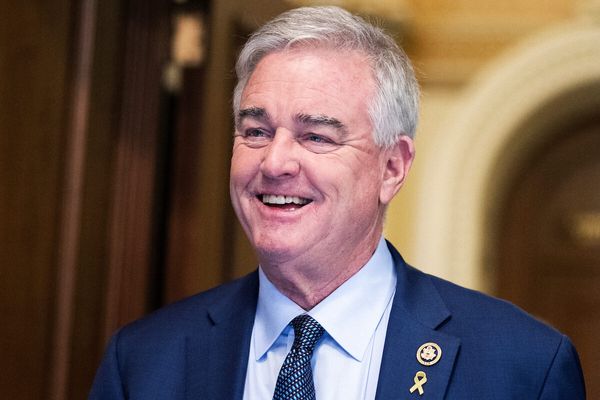
The chief executive of the water company Severn Trent is seeking backing from industry and the Labour party for British utility firms to be reformed as “social purpose” companies that would stay in private hands but give greater weight to the needs of customers, staff and the environment.
Liv Garfield, who has run the FTSE 100 company since 2014, has this week written to the chief executives of utility companies in the water, energy and telecoms sectors inviting them to an “off-the-record roundtable” chaired by Will Hutton, a columnist for the Observer and the co-chair of the Purposeful Company.
Amid a financial crisis in the water industry, during which government officials have been discussing a temporary renationalisation of Thames Water, Garfield is trying to shape the debate over the future of England’s 11 privately owned regional water monopolies and other utilities.
Her proposals include provision of social tariffs for vulnerable customers, a strong voice for employees in strategic decision making, and making a positive contribution to the environment.
In a confidential email, obtained and published by the Evening Standard, Garfield wrote: “While it is clear Labour will not include nationalisation in its next manifesto, they are also not keen on entering into the election race championing the status quo. The leadership thinks there is room for improvement and, politically, there is significant pressure to ‘do something’ about utilities.
“One idea we believe might be attractive to the Labour leadership is repurposing utilities and utility networks into a new breed of declared social purpose companies – companies that remain privately owned, who absolutely can (and should) make a profit, but ones that also have a special duty to take a long-term view.”
The nationalisation of water companies – which was proposed by the former Labour leader Jeremy Corbyn in the run-up to the 2019 general election – has risen back up the public agenda after concerns over the financial health of Thames Water emerged hours after the sudden resignation of its chief executive on Tuesday.
Garfield told the chief executives that the Labour party was “aware we are soft testing various ideas”.
Her email included an “imagined press statement about what the end product could look like” entitled “Labour to reset how utility companies operate to ensure world class public services in the UK”.
Hutton said he supported Garfield’s initiative. He said he had been “arguing for stakeholder capitalism” since he wrote his book, The State We’re In, in 1996. “Stakeholders can best be united and energised in companies who put their purpose – their reason for being – first and foremost. Well-earned profits will follow,” he said. Hutton said he believed regulated utility firms should be incorporated as “public benefit companies”.
“Undoubtedly there are cases where publicly owned corporations are right, but the huge expense alone rules nationalisation out as the default position for every utility,” he said. “I therefore congratulate and welcome Severn Trent CEO Liv Garfield’s initiative and, given my longstanding advocacy going back more than 25 years, happy to help if I can.” . It is not clear whether any roundtable will eventually take place.
The email emerged as Severn Trent, which serves Birmingham and the wider Midlands region, prepared for its annual investor meeting in Coventry next week.
Pirc, which advises shareholders on how to vote at annual meetings, has recommended that investors vote against the company’s pay report. It is due to pay Garfield a £3.2m pay package.
It says Garfield is paid 28 times the average employee, which is “considered excessive”. Pirc also recommends investors vote against the reappointment of Deloitte as the company’s auditor, and the re-election of its audit committee chair, John Coghlan, owing to their lengthy tenures.
With concerns about the level of debt at a number of water companies, investors have been injecting more cash to help stabilise the situation.
Southern Water is reportedly poised to secure a £500m cash injection from the Australian investment bank Macquarie as it faces issues with rising interest rates and costs, which have hindered Thames Water. This follows a £500m investment by Yorkshire Water’s shareholders on Monday.
Meanwhile, the GMB union will soon announce strike dates for more than 1,000 employees at United Utilities. A majority of 68% voted in favour of strike action over pay and “in protest at years of under-investment” at the company, which supplies water in the north-west.
A United Utilities spokesperson said: “That vote took place two weeks ago. Since then we have made an improved pay offer which ranges between 7.5% to 8.6% for our employees, along with an additional payment of £1,000. All four recognised unions, including GMB, are currently balloting their members on the new offer.
“GMB has not notified us of strike action and all of our employees continue to work as normal, maintaining services for customers.”
Severn Trent declined to comment on Garfield’s email.







